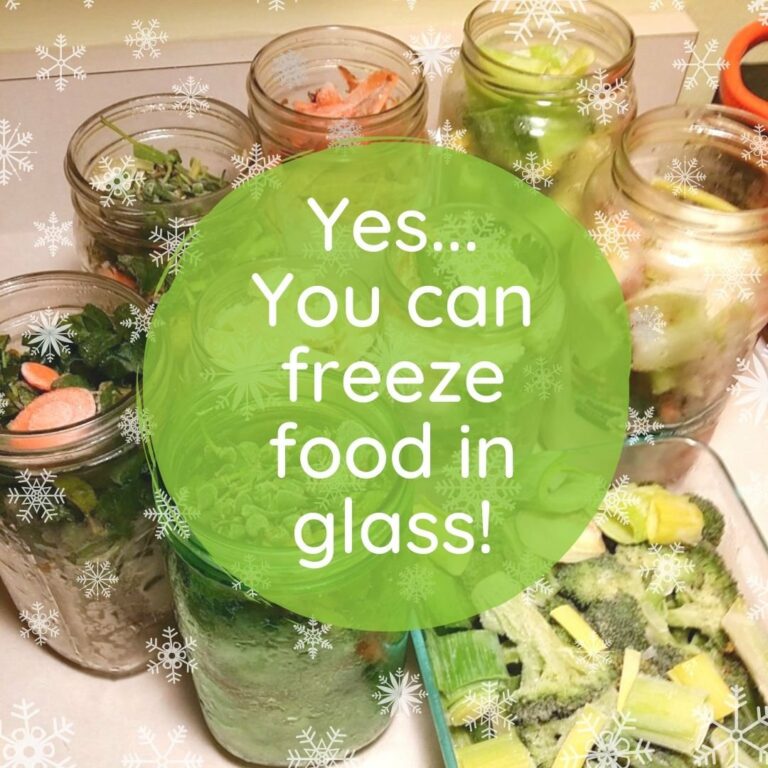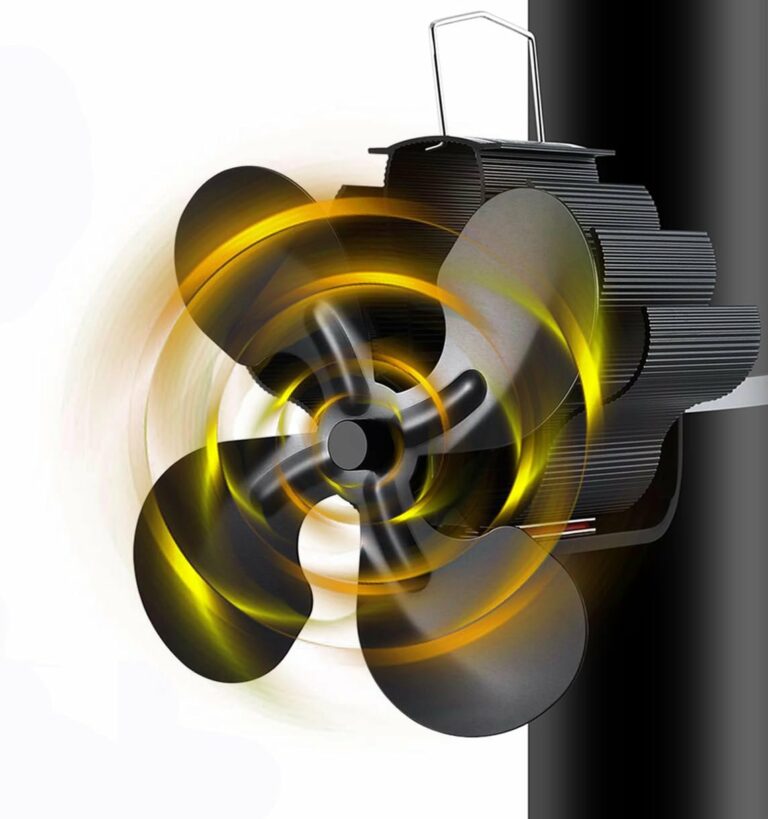Can You Freeze In Metal Containers? Find Out The Best Freezing Method!
Can you freeze in metal containers? The short answer is yes, you definitely can! When it comes to freezing food or liquids, we often think of plastic or glass containers as the go-to options. However, metal containers can be a fantastic alternative that offers several advantages.
Not only are they durable and able to withstand extreme temperatures, but they also provide efficient cooling properties that can help prolong the freshness of your frozen items. So, if you’re looking for a reliable freezing solution, metal containers might just be the answer you’ve been searching for. Let’s delve deeper into why freezing in metal containers is worth considering.
Can You Freeze in Metal Containers?
When it comes to freezing food, there are plenty of storage options available. From plastic containers to glass jars, each material comes with its own advantages and disadvantages. One popular question that often arises is whether it is safe to freeze food in metal containers. In this article, we will delve into the topic of freezing in metal containers and explore the considerations, benefits, and precautions associated with this method.
Understanding Freezing in Metal Containers:
Freezing in metal containers can be a convenient option that offers various benefits. Let’s take a closer look at how this process works and what you need to know:
- Metal containers such as stainless steel or aluminum can effectively withstand the extreme temperatures of freezing without warping or cracking.
- These containers are usually airtight, which helps prevent freezer burn and maintain the quality of the food.
- Due to their durability, metal containers are often reusable and can be a sustainable choice for freezing food.
Preparing Food for Freezing in Metal Containers:
Before you start freezing food in metal containers, it is essential to follow some preparation steps. These steps ensure that your food stays safe, maintains its quality, and avoids any potential issues. Consider the following:
Gather the Right Containers
Choose metal containers that are specifically designed for freezing. Avoid using containers with nonstick coatings, as they might not be suitable for freezing and can release harmful chemicals.
Ensure Food is Cooled
To prevent condensation and ice crystals, it’s crucial to cool your food before placing it in metal containers. Allow hot food to cool to room temperature, and refrigerate it for a few hours before freezing.
Package Food Properly
When packing food in metal containers, ensure there is enough headspace to accommodate any expansion during freezing. Leave approximately ½ inch of space between the food and the container’s lid.
Benefits of Freezing in Metal Containers:
Freezing food in metal containers offers several advantages compared to other storage options. Here are some notable benefits:
- Temperature Regulation: Metal containers excel at maintaining a consistent temperature, preventing temperature fluctuations that can compromise food quality.
- Durability: Metal containers are often more rugged and long-lasting compared to other materials, making them a reliable choice for long-term freezing.
- Stain and Odor Resistance: Metal containers are less likely to retain stains and odors from foods, ensuring that your frozen items remain fresh and uncontaminated.
- Stackability: Many metal containers are designed to be stackable, optimizing freezer space and allowing for easy organization.
Precautions when Freezing in Metal Containers:
While metal containers can be a suitable option for freezing, it’s important to be aware of certain precautions to ensure food safety and quality. Consider the following:
Avoid Acidic Foods
Avoid freezing highly acidic foods, such as tomatoes or citrus fruits, in metal containers. The acid content can react with the metal and impact the taste or quality of the food.
Protect Against Freezer Burn
Although metal containers are generally airtight, it’s still a good idea to double-wrap food to protect it from potential freezer burn. Consider using freezer-safe plastic wrap or bags as an additional layer of protection.
Monitor Food Storage Time
Maintain proper food storage practices and adhere to recommended storage times. While metal containers can help preserve food quality, it’s important not to exceed the recommended freezing times for different types of food.
Alternatives to Metal Containers:
While metal containers offer many advantages for freezing, it’s essential to explore other options that might better suit your needs. Consider the following alternatives:
Plastic Containers
Plastic containers specifically designed for freezing are a popular choice due to their affordability and wide availability. Look for containers labeled as freezer-safe to ensure they can withstand the freezing process without cracking or releasing harmful chemicals.
Glass Jars
Glass jars, such as mason jars or tempered glass containers, offer a visually appealing and eco-friendly option for freezing. Ensure you leave enough headspace to accommodate expansion during freezing, as glass can be more prone to breakage.
Freezer Bags
Freezer-safe plastic bags are a space-saving option for freezing. They conform to the shape of your food, reduce air exposure, and are ideal for freezing items such as soups, sauces, or fruits.
Tips for Freezing in Metal Containers:
To make the most out of freezing in metal containers, consider implementing the following tips:
Label and Date Containers
Always label your metal containers with the contents and date of freezing. This practice helps you keep track of the food’s freshness and simplifies meal planning.
Thaw Properly
When it’s time to thaw your frozen food, ensure you do it safely. Transfer the metal container to the refrigerator and allow it to thaw gradually. Avoid thawing at room temperature to minimize the risk of bacterial growth.
Consider Portion Control
To avoid wasting food, freeze items in portion sizes that are suitable for your needs. This approach allows you to defrost only what you plan to consume, reducing potential food waste.
Can You Stop Water From Expanding When It Freezes Into Ice?
Faqs for Can You Freeze In Metal Containers:
Yes, you can freeze food in metal containers. Metal containers are excellent for freezing because they conduct cold temperatures efficiently, helping to freeze the food quickly and maintain its quality.
However, it is essential to use freezer-safe metal containers to avoid any potential issues. These containers are typically made from materials like aluminum or stainless steel, which are resistant to freezing temperatures and won’t leach any harmful substances into the food.
No, not all metal containers are suitable for freezing. Regular household metal containers, such as those made of iron or copper, are not recommended for freezing food. These metals may react with the food, resulting in a metallic taste and potential contamination. It is crucial to use specifically designated freezer-safe metal containers, typically made from aluminum or stainless steel, to ensure the preservation of food quality during freezing.
It is generally safe to freeze foods with acidic or high-salt content in metal containers. Freezer-safe metal containers, particularly those made of stainless steel, are resistant to these types of food and won’t react with them.
However, it is advisable to avoid leaving highly acidic or salty foods in metal containers for extended periods, as they can cause minor discoloration or stains over time. To prevent this, it is best to transfer the food to airtight plastic containers for long-term storage.
Absolutely! Metal containers with lids are suitable for freezing food. Using containers with tight-fitting lids is especially beneficial as it helps prevent freezer burn and protects the food from absorbing unwanted odors. It is essential to ensure that the lids are secure and airtight to maintain the quality of the frozen food.
Additionally, transparent lids enable easy identification of the contents, making it convenient to locate specific items in the freezer.
While freezing in metal containers is generally safe, there are a few precautions to keep in mind. Firstly, never use metal containers with non-stick coatings for freezing. These coatings may not be designed to withstand freezing temperatures and can potentially release harmful chemicals. Additionally, avoid overfilling the containers as the food may expand when frozen. Lastly, make sure to label the containers with the contents and freezing date for easy organization and timely consumption.
Final Thoughts
Freezing food in metal containers is possible and can be beneficial. Stainless steel or aluminum containers have good thermal conductivity, allowing for faster freezing and better temperature retention. However, it’s important to use containers designed for freezing to avoid damage or contamination. Using containers with tight-sealing lids is also recommended to preserve the quality of the frozen food. In summary, freezing in metal containers is a convenient and effective way to preserve different types of food.


